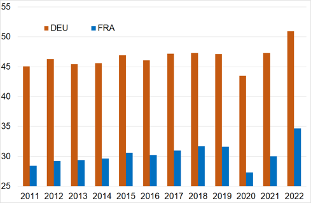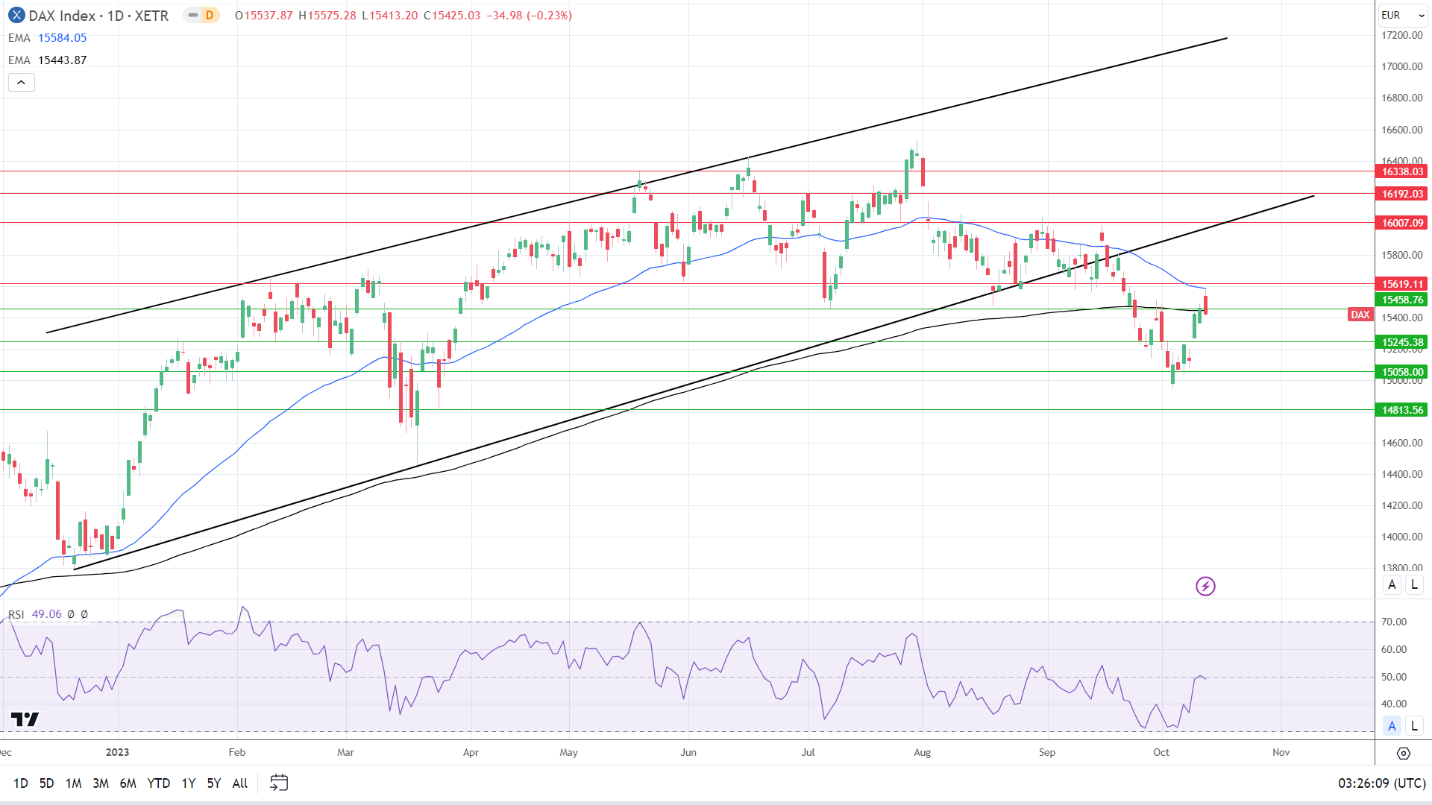Analyzing The Impact: A Canadian Travel Boycott And The US Economy

Table of Contents
The Tourism Sector: A Major Casualty
A significant portion of US tourism revenue originates from Canadian visitors. A boycott would directly and severely impact businesses heavily reliant on this crucial source of income. The economic ramifications would be substantial and far-reaching.
Direct Revenue Loss
A Canadian travel boycott would immediately translate into substantial direct revenue losses for numerous businesses across the US. This isn't limited to just border towns; popular tourist destinations across the country would feel the pinch.
- Hotels and accommodation providers: Border states like Washington, Montana, and New York, as well as popular tourist destinations such as Florida, California, and New York City, would experience significant occupancy drops.
- Restaurants, bars, and entertainment venues: Businesses catering to tourists, particularly those offering experiences attractive to Canadian visitors, would see a dramatic reduction in customer traffic and revenue.
- Transportation services: Airlines, rental car companies, and tour operators offering services connecting Canadian cities to US destinations would face reduced demand and potentially significant financial losses. This would particularly affect routes frequently traveled by Canadians.
- Retail businesses: Retailers in border towns and tourist areas who benefit from cross-border shopping by Canadians would see a considerable drop in sales. Duty-free shops and outlets would be especially vulnerable.
Job Losses and Economic Ripple Effects
The decline in tourism revenue would inevitably lead to widespread job losses across multiple sectors, creating significant ripple effects throughout the US economy.
- Layoffs in hospitality and related industries: Hotels, restaurants, and entertainment venues would likely resort to layoffs to cope with reduced revenue. This would have a cascading effect on related industries.
- Reduced demand for local goods and services: The decrease in tourist spending would lead to lower demand for local goods and services, impacting businesses in the supply chain. Local farmers, food producers, and craft businesses would likely be affected.
- Potential decreases in tax revenue for state and local governments: Reduced economic activity would result in lower tax revenue for state and local governments, potentially impacting public services and infrastructure projects. This could lead to further economic instability.
Beyond Tourism: Other Economic Sectors Affected
The impact of a Canadian travel boycott extends far beyond the immediate tourism sector. The broader economic implications could be significant and long-lasting.
Cross-border Trade and Investment
A boycott could signal broader political and economic tensions, negatively impacting cross-border trade and investment. This would represent a significant threat to overall economic health.
- Reduced trade in goods and services: A decline in tourism could be accompanied by a reduction in trade in other goods and services, further weakening economic ties between the two countries.
- Decreased investment from Canadian companies in the US: Political tensions stemming from a boycott could discourage Canadian investment in the US, impacting economic growth and job creation.
- Potential for retaliatory measures from the US: The US might respond with retaliatory measures, further escalating tensions and harming both economies. This could involve trade tariffs or other restrictions.
Currency Fluctuations
A reduction in Canadian tourism spending could influence the US dollar's exchange rate against the Canadian dollar, with potential knock-on effects on other economic sectors.
- Potential weakening of the US dollar: Decreased demand for the US dollar due to reduced Canadian tourism could lead to a weakening of its value.
- Increased costs for US consumers importing Canadian goods: A weaker US dollar would make Canadian goods more expensive for US consumers, potentially impacting inflation and consumer spending.
- Uncertainty in financial markets: The economic uncertainty created by a boycott could lead to volatility in financial markets, impacting investment and economic confidence.
Mitigating the Impact: Strategies for the US Economy
The US could take proactive measures to mitigate the potential economic damage from a Canadian travel boycott. A multi-pronged approach would be required.
Proactive Measures
The US government and the private sector can work together to implement several strategies to mitigate the impact of a potential boycott.
- Increased marketing and promotional campaigns targeting Canadian tourists: Aggressive marketing campaigns highlighting the unique attractions and value propositions of the US could help attract Canadian visitors.
- Incentives for Canadian visitors, such as travel discounts or tax breaks: Offering incentives could encourage Canadians to continue visiting the US despite potential political tensions.
- Strengthening cross-border relations to address the root causes of the boycott: Addressing the underlying political or economic issues causing the boycott is crucial for long-term stability. Open dialogue and collaborative problem-solving are essential.
Diversification of Tourism Markets
Reducing reliance on a single source of tourism revenue is crucial for long-term economic stability.
- Investment in infrastructure and marketing to attract tourists from other countries: The US needs to actively promote its tourism offerings to other international markets to diversify its revenue streams.
- Focus on promoting unique US travel experiences: Highlighting unique aspects of American culture and landscapes can attract a wider range of international tourists.
- Developing niche tourism sectors, such as eco-tourism or adventure tourism: Investing in niche tourism sectors can attract specialized tourists and increase revenue diversity.
Conclusion
A hypothetical Canadian travel boycott presents a serious challenge to the US economy, with the tourism sector bearing the brunt of the impact. The potential consequences extend far beyond direct revenue losses, affecting employment, cross-border trade, and currency fluctuations. Addressing these potential negative consequences requires a proactive and multifaceted approach, encompassing strengthened US-Canada relations, diversified tourism markets, and strategic initiatives to attract Canadian tourists. Understanding the potential ramifications of a Canadian travel boycott is crucial for both economic planning and policy-making. Further research into the intricacies of cross-border tourism and economic interdependence is essential to develop effective mitigation strategies and ensure the long-term economic stability of the United States. Ignoring the potential for a Canadian travel boycott could have severe and lasting repercussions.

Featured Posts
-
 El Secreto Del Gol El Metodo Ardila Olivares
Apr 27, 2025
El Secreto Del Gol El Metodo Ardila Olivares
Apr 27, 2025 -
 Belinda Bencic Campeona Nueve Meses Despues Del Parto
Apr 27, 2025
Belinda Bencic Campeona Nueve Meses Despues Del Parto
Apr 27, 2025 -
 Microsofts Design Chief On The Ethical Implications Of Ai Development
Apr 27, 2025
Microsofts Design Chief On The Ethical Implications Of Ai Development
Apr 27, 2025 -
 German Stock Market Dax Election And Economic Influences
Apr 27, 2025
German Stock Market Dax Election And Economic Influences
Apr 27, 2025 -
 Broadcoms V Mware Acquisition At And T Highlights Extreme Price Hike Concerns
Apr 27, 2025
Broadcoms V Mware Acquisition At And T Highlights Extreme Price Hike Concerns
Apr 27, 2025
Latest Posts
-
 Analyzing The Dax The Role Of Politics And Business In Market Fluctuations
Apr 27, 2025
Analyzing The Dax The Role Of Politics And Business In Market Fluctuations
Apr 27, 2025 -
 Bundestag Elections And Their Effect On The Dax Index
Apr 27, 2025
Bundestag Elections And Their Effect On The Dax Index
Apr 27, 2025 -
 German Stock Market Dax Election And Economic Influences
Apr 27, 2025
German Stock Market Dax Election And Economic Influences
Apr 27, 2025 -
 Dax Performance Impact Of German Elections And Business Data
Apr 27, 2025
Dax Performance Impact Of German Elections And Business Data
Apr 27, 2025 -
 Dax Bundestag Elections And Economic Indicators
Apr 27, 2025
Dax Bundestag Elections And Economic Indicators
Apr 27, 2025
